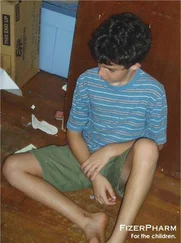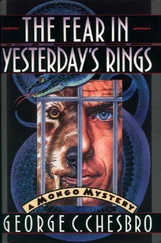The phone in the hallway started to ring — my family wishing me a Happy Christmas. So, I did all that ‘Yes, you too. Yes, you too,’ through brothers and sisters and aunts, shuffled at high speed on the long-distance line. When I came back, Li had washed the dishes. She came into the living room and stood in front of me.
‘Thank you for a lovely “Christmas,” Alison,’ she said, with a little squirm. Then she walked past me, into her room.
They were sweet, nothing days. I managed to sleep through all the hours of daylight; the nights I spent reading or looking at the weather as it fell past the street lamp outside: a slight snow, or drizzle, or just the night itself in a long yellow cone. This little slice of weather made me think that the air is really busy and there is an awful lot of it, and it was good to be inside and small and barely, just barely , existing. I felt almost flayed — peeled bare and true. It was so peaceful I jumped at the smallest sound: a plastic bag subsiding in the kitchen; my own breath.
It was a kind of spell, those endless night-days of sitting and pacing and breathing. At four in the morning, I might look at the street lamp and want to cry for the melancholy beauty of the light, or the air fizzing about beneath it, or for the millions of street lamps and the millions of windows and all the drops of rain. Li was in there somewhere too, sleeping her Chinese sleep in those nylon pyjamas: not quite a Buddha but, still, my little plastic charm.
We met over her breakfast, which was my supper, and we murmured at each other like people who live together but have other business in hand. Everything was quite easy. When Karen put her key in the door, I thought we were being burgled. I realised that I had missed New Year’s Eve, somehow. And I was sad. Whatever had happened, it was all over now.
Karen was in a complete rage after the holidays. Something about her father’s girlfriend and a dog, I think, or a car. Whatever. Her father’s girlfriend was Superbitch, and so Karen snapped at us all day and cried herself to sleep at night. We could hear her through the wall. Then, suddenly, I was in love with the massively-clever-but-a-bit-dull guy from New York — completely obsessed. I talked and talked, and paced down to the lake and back again. I finally got him to call for some notes he wanted to borrow and, when he left, I shut the door behind him and slid down it on to the floor. ‘Oh, Li,’ I said, laughing. ‘Oh, Li.’
For some reason it became the roomies’ joke. ‘Oh, Li!’ we said. ‘Oh, Li.’ When anything funny or desperate happened, like a burnt saucepan, or peculiar-looking hair. It was better when she was there, but we said it sometimes when she wasn’t. As for Li, she seemed flattered by the attention: she always made that silly, laughing sound. But it confused her, too.
One evening she announced, quite carefully, that Li was what we call a surname. Her given name, which came second in Chinese, was Chiao-Ping. But mostly Ping. Then she was silent. It seemed that she didn’t want to do anything with this information, she just wanted to say it.
‘Oh, Ping,’ I said, after a moment’s silence. ‘Oh, Ping.’ And we couldn’t help it, we just dissolved, we just laughed and laughed until we were on the floor.
The next night, I found myself struggling through a horrible dream. It was one of those dreams that soak right through you, a sickener. I think the guy from New York was in it, and he was absolutely evil. I fought to wake up and the dream lurched. My mother was there, warning me, I swear it. My mother was there saying, ‘Wake up, wake up, darling,’ though ‘darling’ was never her sort of word. So I did wake up, and my body was flailing on the bed. My head was stuck and there was something wrong with the darkness. I tried to breathe but it didn’t work, somehow. I couldn’t catch my breath. My hand connected with something, a face, and I pushed into it with all my strength. I pushed my fingers into the eyes.
Ping was trying to smother me. Finally. I suppose if it hadn’t been a bunk-bed I might have died but, when I pushed, she overbalanced on the ladder and fell. I looked down and she was on the floor, scrabbling for the pillow. She grabbed it and looked up at me, then she said something in Chinese. It sounded really strange and vicious. I had never heard her speak Chinese before.
I might have left it. Isn’t that funny? Like the razors and the knickers and Karen crying all the time. I might have said nothing and just gone on, or dealt with it in some other, sidelong way. But the noise of her falling woke everyone and, the next thing, Karen was knocking on the door, ‘You OK in there?’ and when she opened it, Ping was still on the floor, and I was still looking down at her.
After that, everyone tried to make me feel guilty again. Ping was sent back to China (to where? to a camp?) and I had about three college counsellors, just in case I might want to sue. They all talked about racism. They sidled up to it. But I said it wasn’t the fact that she was Chinese that mattered, it was the fact that she was insane. Besides, I couldn’t tell them that I didn’t care. I couldn’t tell them what really happened to me, the weird thing, the real thing. Because, sometime after my mother called me ‘darling’ and before I pushed Ping off the ladder, I felt the strangest feeling. It was a thing, it was me, it was my very self, fluttering in my chest and trying to get out of there, exultant, like it had been living in the wrong person and was finally going home.
PALE HANDS I LOVED, BESIDE THE SHALIMAR
I had sex with this guy one Saturday night before Christmas and gave him my number and, something about him, I should have known he would be the type to call. For once, I was almost grateful that Fintan answered the phone. I could hear him through the sliding door.
‘Yes, she’s here. She’s in the kitchen, eating dead things.’
Then, ‘No, I’m not a vegetarian.’
Then, ‘I mean dead as in dead. I mean people like you.’
I said, ‘Just give me the phone, Fintan.’
After the call was finished, I threw out the rest of my dinner, came into the living room and sat down. Fintan was watching a documentary about airports, which turned out to be quite funny. When it was over, I got up to go to bed and he looked up at me and said, ‘Do not go gentle.’
And I said, ‘Goodnight, Fintan. Goodnight, darling. Goodnight.’
I nearly went out with Fintan, before he was diagnosed. Now, we live together and people say to me, Isn’t that a bit dangerous? But he is the gentlest man I know. The ashtrays were the biggest problem; the filth of them. I finally said it to him one day over the washing-up, and he disappeared for a week. Then one evening he was back, sitting on the sofa with a brass box in his hand. It had the most vicious spring lid. I said, ‘Where did you get that from, India?’ and he looked at me. You can hear him clacking and snapping all over the house now. It’s like someone smoking into a mousetrap, but it still makes me smile.
Otherwise I have no complaints. I would get him to wash his clothes more, but I think he is happier with the smell, and so am I. It reminds me of the time when I nearly loved him, back in college when it rained all the time, and no one had any heating, and the first thing you did with a man was stick your schnozz into his jumper and inhale.
These days, he is thinner and his hands tremble. He leaves his coat on around the house, and spends a lot of time looking at the air in the middle of the room — not at the ceiling or the walls, but at the air itself.
You can’t trust that sort of thing. I would be the last to trust it. Personally, I don’t think he would hurt a fly, but I still check his medication when he is not around. And yet, it was true what he said — when the phone rang that night, I was eating dead things. I was sitting in the kitchen with the condensation running down the black windowpane, forking through the carbonara as though it was all the men I had missed or messed up. All the men I had missed or messed up. If it was a song you could sing it. If it was a song you could Play it, Sam.
Читать дальше












